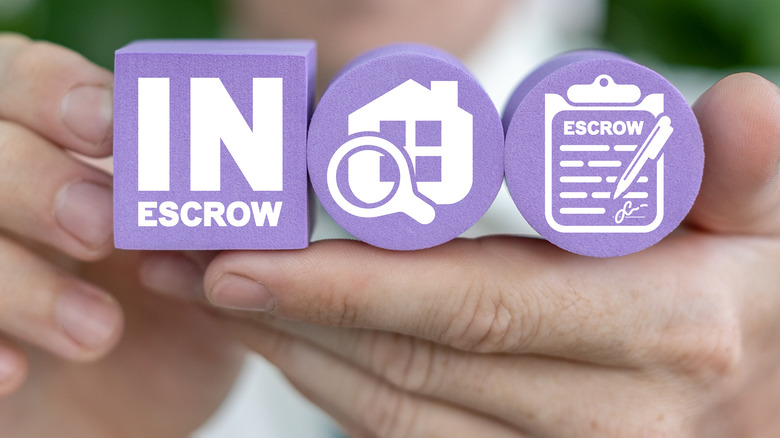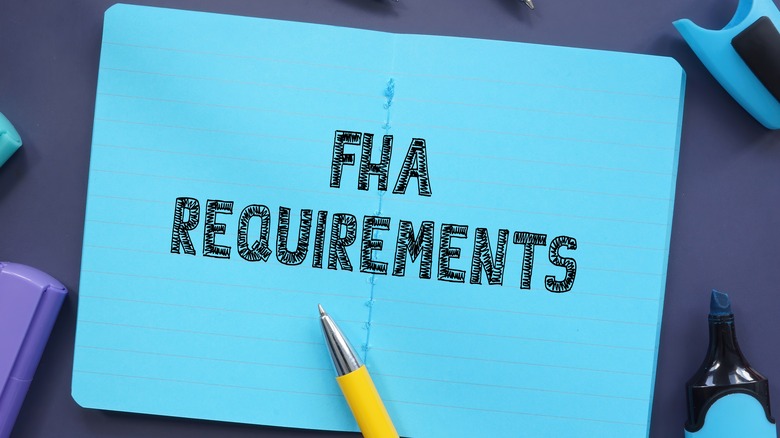How To Stop Your Mortgage Escrow Account
The average monthly mortgage payment in the U.S. is $1230 for a fixed-rate loan on a 30-year term, according to Bloomberg. That is 36% higher than 2021. With higher interest rates and today's housing shortage, individuals in the market for a home might back off from their search for a while. And others who are currently paying on a mortgage might look for ways to rework their budget to trim down that monthly payment. Thus, they might consider eliminating their escrow account.
For instance, if you look down the line items of your mortgage bill, you'll see the amounts that go towards property tax, homeowner's insurance premium, interest, and principal. If you stop your mortgage escrow account, then you'll take out the portions for insurance and tax. However, you'll still need to plan ahead to pay those items on time and keep track of their due dates. So, it's worth taking the time to look at the implications of stopping your escrow before taking the next step.
Overview of how mortgage escrow accounts operate
How exactly does an escrow account work? Basically, a third-party servicer takes a portion of your payment, holds it aside for property tax and insurance, and then disburses the funds to the insurance company and your local taxation agency upon their due dates, as detailed by Nolo. Hence, 1/12 of your overall premium and property tax is taken out each month, with some servicers opting to take out two months worth of payments in the event of an increase in the premium and the property tax.
Not only is this practice a convenience since you don't have to worry about remembering to pay the insurance and tax bill every month, but some mortgage lenders require it. However, you can get around having an escrow account as long as you pay the premium and the taxes on time. Instead of a third party taking the funds out of your mortgage payment, you would be responsible for designating part of your budget to cover those expenses and ensuring they get to where they need to go.
How to stop a mortgage escrow account
As Nolo notes, every financial institution has its own policy for stopping a mortgage escrow account. In most cases, you need to ensure that all property taxes and insurance payments are up to date and nothing is owed to either of these entities for at least the next month. For other lenders, you might need to wait a year or more before stopping the mortgage escrow account. As an illustration, when you go to the Knowledge Base page for U.S. Bank, their criteria for closing the escrow account is having a balance that's up to date with no past due payments during the previous 12 months. Also, the escrow account must have been open for at least a year. To request a cancellation of this account from U.S. Bank, you'll need to send a request in writing or by email.
For other lenders, as noted by Rocket Mortgage, you can request an escrow waiver. However, if you are granted one, you must stay current on your tax and insurance bills or risk having the waiver renounced once you start falling behind on payments.
Pros and cons of stopping your mortgage escrow account
Like any other change to your mortgage payment and terms, stopping your escrow account has its benefits and disadvantages. Forbes describes one advantage relating to the monthly budget. If you don't have to set aside funds for taxes and insurance premiums on your own, then there are fewer payments you have to worry about since they're included in your mortgage bill. Therefore, having an escrow account can lessen your stress since you know what to expect each month, with the exception of a slight fluctuation in property taxes.
The other side to that idea is not having as much control over your money and where it goes. Also, you may be concerned about the servicer not paying the tax or premium on time (though this rarely happens). Furthermore, if you decide to change insurance companies to lower premiums through a bundle discount, the servicer has to be notified immediately or risk a late payment.
What types of mortgages require an escrow?
So before you decide to stop your mortgage escrow account, you may need to double-check the terms since some types of mortgages require that you keep the escrow, according to Quicken Loans. For example, your government-backed loans, such as a USDA or an FHA loan, count an escrow account as one of their must-haves. Also, high-cost home loans require mortgage escrow accounts for at least the first five years of the term. Many lenders specializing in conventional loans, like Fannie Mae and Freddie Mac uniform mortgages, possess an escrow clause that calls for the borrower to have a mortgage escrow account. On the other hand, if you place a down payment that's 20% or more of the price of the house, you might have a chance at gaining an escrow waiver if you pay a fee.
Additionally, VA loans don't require mortgage escrow accounts from the lenders, but they need documented assurance that the house is adequately insured and that taxes are kept current. Hence, lenders who offer VA loans might institute an escrow requirement to meet those criteria.




